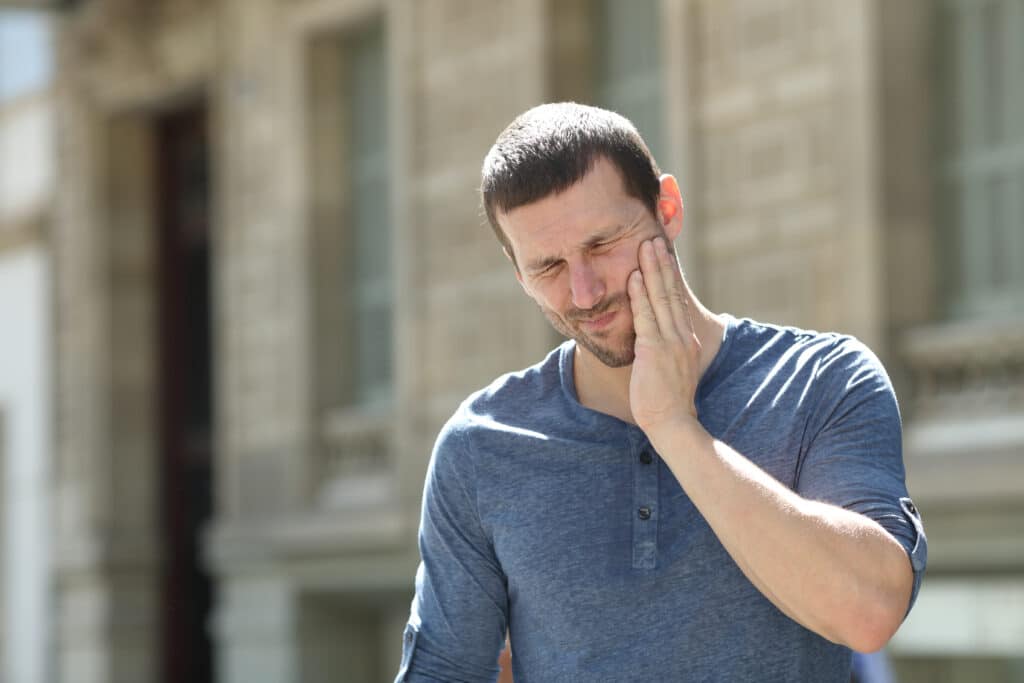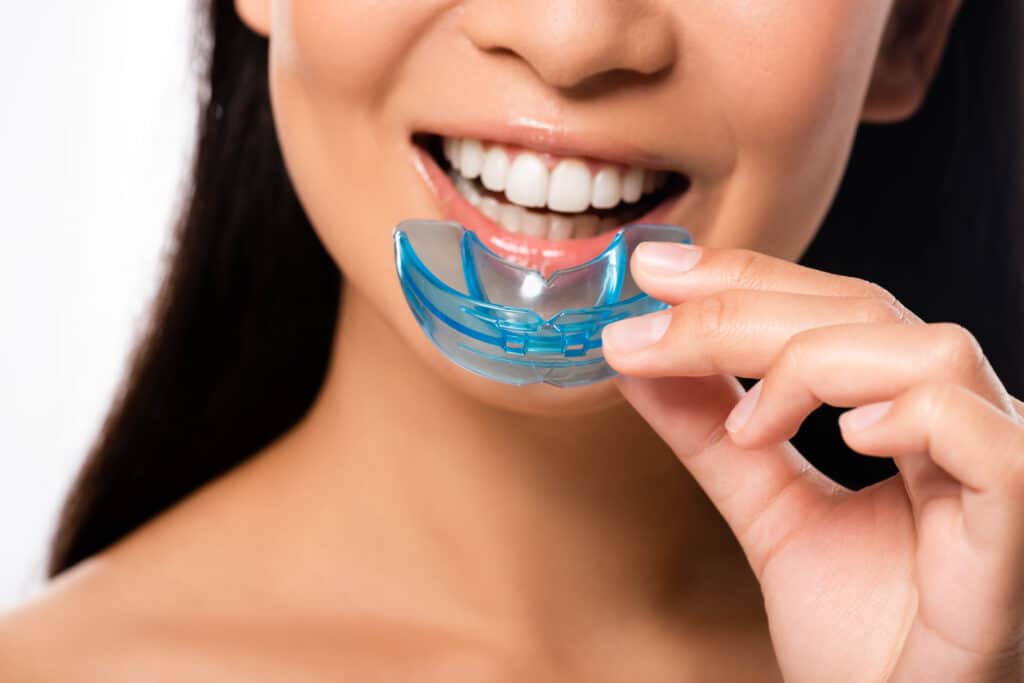
Bruxism, also known as tooth grinding, is a common sleep disorder affecting around 10% of U.S. adults and 15% of children. If left unchecked, it can lead to a number of issues; however, there are effective treatment and prevention options available. Read on to discover answers to six questions you may have if you or your child were diagnosed with bruxism.
#1. What is Bruxism?
Everyone grinds their teeth on occasion, but if you grind your teeth frequently, you may have bruxism, which is a more serious issue. There are two types of bruxism, with different causes and treatment options.
Awake Bruxism
With this condition, you may find yourself frequently grinding your teeth or clenching your jaw during the day, especially when you are concentrating on something or feeling stressed, angry, or anxious.
Awake bruxism doesn’t usually require treatment, since you are able to notice when you’re grinding your teeth and stop yourself from continuing; however, mindfulness of stressors in your life may help it stop occurring as frequently.
Sleep Bruxism
On the other hand, sleep bruxism happens unconsciously at night and is not necessarily linked to your emotional state. Because you are asleep, you probably aren’t aware of your teeth grinding and are unable to make an effort to stop. This type of bruxism is more serious and can cause a myriad of health issues.
#2. Does Bruxism Affect Oral Health?
Occasional teeth grinding shouldn’t be an issue, but if it happens frequently, it can affect your oral health. With up to 250 pounds of force being exerted, your teeth and jaw may experience many different problems, including:

- Headaches
- Aesthetic changes in your face and profile
- Cracked or loose teeth
- Jaw pain, locked jaw, and TMJ disorders
- Strained jaw and neck muscles
- Tooth loss
- Wearing down of tooth enamel
- Pain when eating
- Earaches
- Disrupted sleep
#3. What Causes Bruxism?
There is no one thing that causes someone to grind their teeth; it’s often due to a combination of factors. People who are more driven, anxious, or prone to stress are more likely to develop bruxism. You may face a higher risk if you have a family history of bruxism, smoke cigarettes, consume caffeine, or use anti-anxiety medications.
#4. How Does Bruxism Affect Children?
Bruxism is more common in children than adults; however, it is less likely to cause long-term damage in children, since their teeth and jaws change so quickly. Many children outgrow bruxism by the time their adult teeth come in.
In children, bruxism can be caused by allergies, mouth irritation, misaligned teeth, heredity, or obstructive sleep apnea. If you hear your child grinding their teeth at night, talk to their dentist to help you identify the root cause and determine if they need treatment.

#5. How Is Bruxism Treated?
If you suspect you may have bruxism, talk to your dentist about your concerns. They can examine your teeth and jaw to look for signs of tooth grinding and jaw clenching. If they determine that you do, in fact, have bruxism, they may fit you with a mouth guard to wear at night. They may also prescribe muscle relaxant medication to take before bed.
Your dentist can also provide treatments for the effects of bruxism. If you have broken, cracked, or worn-down teeth, they may recommend a dental crown, veneers, or even implants to fix the damage.
#6. Can Bruxism Be Prevented?
If stress or anxiety are prevalent in your life and you are worried about developing bruxism, you can seek to better respond to stressors through cognitive behavioral therapy, meditation, exercise, and physical therapy.
You should also avoid constantly chewing gum or non-food items like pens and pencils. If you find yourself clenching your jaw during the day, make a conscious effort to stop. Avoid alcohol, smoking, and excessive caffeine.
Regular dental cleanings and exams can help you catch bruxism early, before it causes more serious problems. Your dentist should know the signs of bruxism and can help you determine whether it is affecting your oral health.
High-Quality Dentistry at VIP Smiles
At VIP Smiles, we are proud to offer personalized care to each of our patients. Our professional team uses state-of-the-art technology to provide cosmetic and restorative treatments, general and family dentistry, orthodontics, and emergency dental care. For more information about the services we offer or to schedule an appointment, call our office in Syracuse, Utah, or visit our website. We can’t wait to help you improve your confidence and give you the best care possible.

